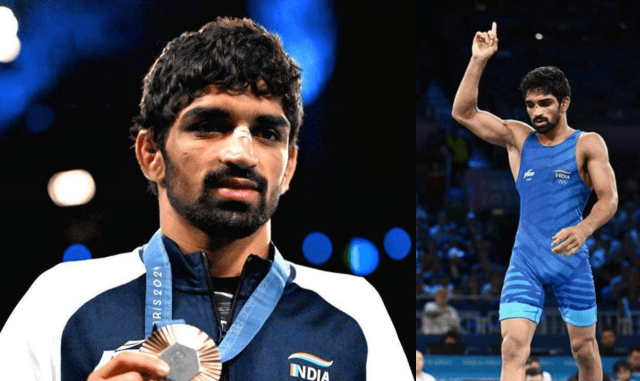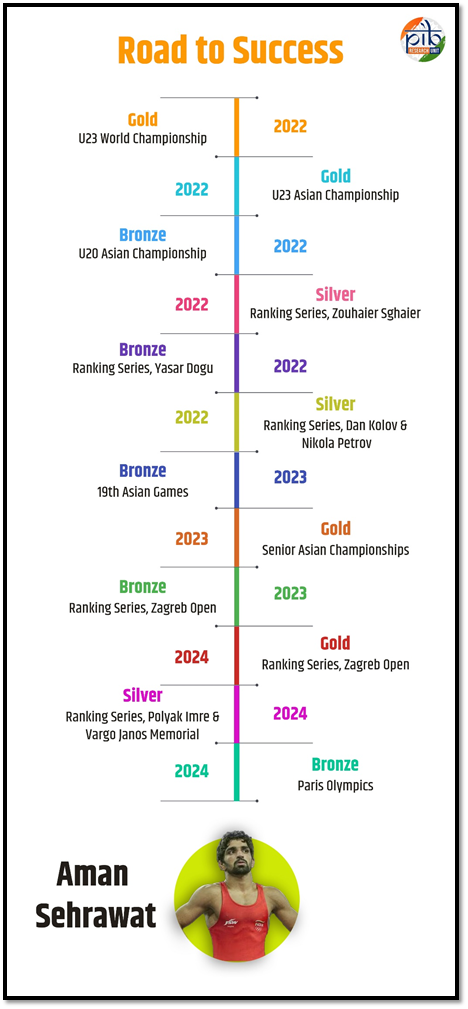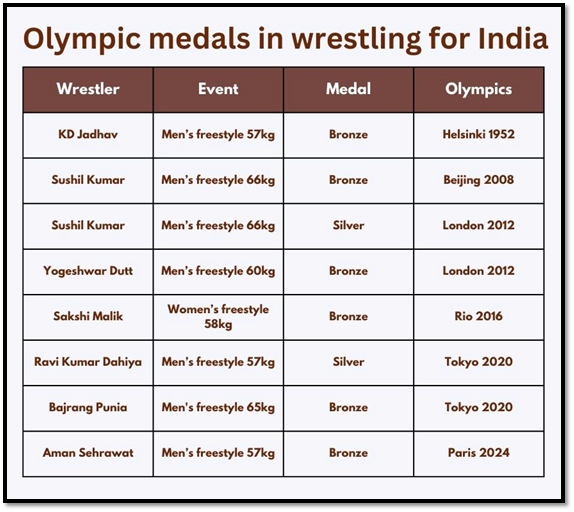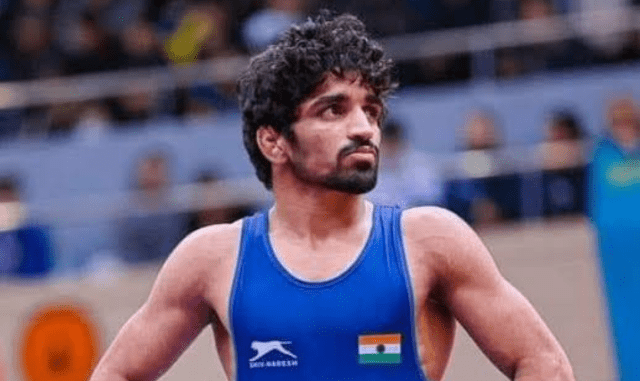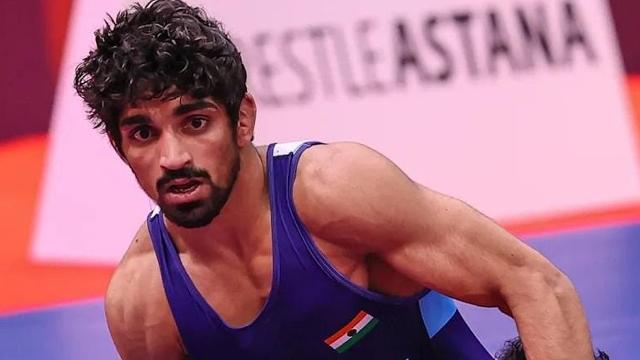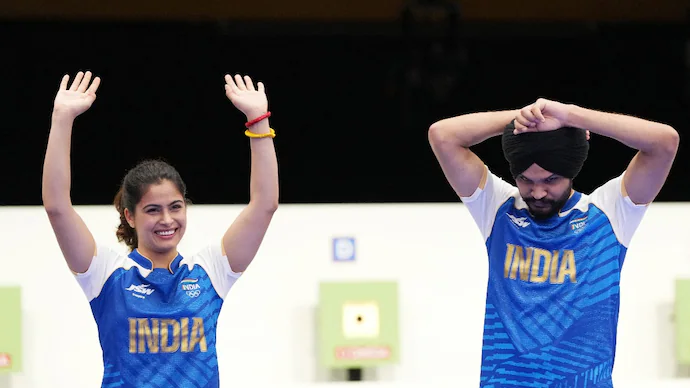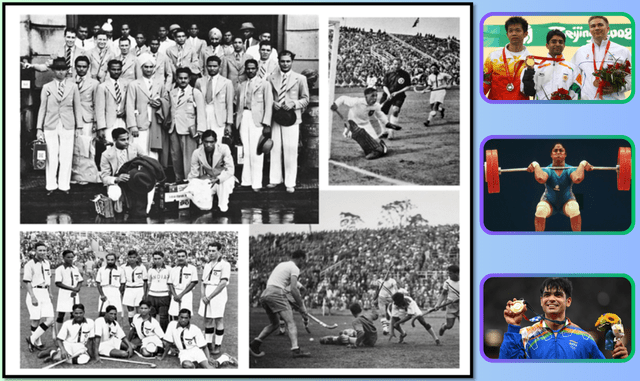Aman Sehrawat, a rising star in Indian wrestling, has reached a new pinnacle in his career by winning the bronze medal in the Men’s Freestyle 57 kg category at the Paris 2024 Olympics.
Aman’s victory not only marks a significant moment in Indian wrestling but also cements his place among the sport’s elite. He brings home India’s fifth bronze and sixth overall medal from the Paris Olympics 2024, a feat that will be celebrated for years to come. Aman also holds the distinction of being the youngest Indian to win an Olympic medal at just 21 years.
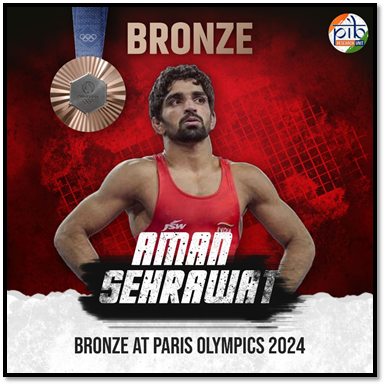
Aman’s journey to Olympic glory is a testament to his dedication and perseverance. Born on July 16, 2003, in Jhajjar, Haryana, he faced the tragedy of losing his parents at a young age. Raised by his grandfather, Mangeram Sehrawat, Aman found inspiration in two-time Olympic medalist Sushil Kumar, who ignited his passion for wrestling. Training at the renowned Chhatrasal Stadium in Delhi, known for producing multiple Olympic medalists, Aman honed his skills and began to carve out a name for himself in the wrestling world.
A Rapid Rise to Prominence
Aman’s career has been marked by a series of impressive accomplishments. His significant achievement came in 2022 when he became the first Indian wrestler to secure a gold medal at the U23 Wrestling World Championships. This victory set the stage for further success, including gold medals at the U23 Asian Championships and the Senior Asian Championships in 2023.
In addition to his gold medals, Aman’s consistent performances in various ranking series events have demonstrated his skill and determination. His medal haul includes victories at the 2024 Ranking Series in Zagreb and the Polyak Imre & Varga Janos Memorial, as well as podium finishes in prestigious tournaments like the Yasar Dogu and Dan Kolov & Nikola Petrov events.
Brief History of Wrestling
Wrestling is a sport that combines raw power, agility, and technique, and has seen a significant rise in popularity in India over the past decade. However, its roots in India date back to the fifth century BCE, with global traces of the martial art form existing as early as 7000 BCE.
In India, wrestling was originally known as ‘malla-yuddha,’ a form of hand-to-hand combat mentioned in ancient epics like the Ramayana and Mahabharata. The sport was widely practiced across modern-day North India, with kings and princes often organizing wrestling competitions for entertainment. Over time, wrestling became known by various names such as dangal, pehlwani, and kushti, with matches traditionally held on mud patches called akharas.
Wrestling was also integral to the lives of the societal elite during the Middle Ages, both in India and globally. The sport gained further prominence with the emergence of professional wrestling in the 19th century. The Greco-Roman style, influenced by French wrestling traditions, became popular, and freestyle wrestling was included in the Olympic program in 1904.
Wrestling continued to thrive in North India, with notable figures like KD Jadhav emerging as key players. Jadhav made history by winning India’s first individual Olympic medal post-independence—a bronze at the 1952 Helsinki Olympics—paving the way for future generations of Indian wrestlers to achieve success on the global stage.
However, the sport faced a decline in the late 20th century until a resurgence occurred with Sushil Kumar’s bronze medal win at the 2008 Beijing Olympics. Sushil Kumar further enhanced his legacy by winning India’s first and only wrestling world championship gold in 2010, marking a new era for the sport in India.
This revival coincided with the rise of women’s wrestling in the country. Alka Tomar’s bronze at the 2006 World Championships marked the beginning of this revolution, which was further fueled by Geeta Phogat’s historic gold at the 2010 Commonwealth Games. Over the next decade, Indian women wrestlers like Sakshi Malik and Vinesh Phogat continued to achieve international success, with Malik winning India’s first female Olympic wrestling medal at the Rio 2016 Games.
The Tokyo 2020 Olympics saw further triumphs for Indian wrestling, with Ravi Kumar Dahiya winning silver and Bajrang Punia securing bronze. Wrestling has now become a sport where India consistently excels, with a growing pipeline of talented young athletes ready to make their mark on the global stage.
Government Support and Preparation
Aman’s achievements have been bolstered by significant financial backing from the Indian government. Under the Target Olympic Podium Scheme (TOPS), he received Rs. 16,05,176, and an additional Rs. 40,45,305 under the Annual Calendar for Training and Competition (ACTC). These funds were crucial in covering expenses for international training camps, including sessions in Russia, where he trained alongside his physiotherapist and sparring partner to prepare for the Paris Olympics.
Olympic Glory
At the Paris 2024 Olympics, Aman Sehrawat delivered a performance that will be remembered for years to come. Competing in the fiercely contested Men’s Freestyle 57 kg category, Aman faced a tough challenge in the bronze medal match against Darian Cruz. However, his determination and tactical prowess shone through as he secured a convincing 13-5 victory, earning him the bronze medal and making his nation proud.
A Bright Future Ahead
Aman’s journey from a young boy inspired by his idol to an Olympic medallist is a story of resilience, hard work, and unwavering support. His success at the Paris 2024 Olympics is not just a personal achievement but also a significant moment for Indian wrestling. As he continues to train and compete, the future looks bright for Aman Sehrawat, and his story will undoubtedly inspire the next generation of wrestlers in India.

